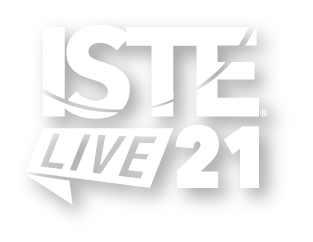

Using a Micro:bit to Differentiate Learning in Scratch |
Explore and create : Creation lab
Katie Henry Jared O'Leary
Absolute beginners are invited to experience a differentiated physical computing and computer science classroom that meets learners where they are. Utilizing Scratch and micro:bits, participants will self-select into interest-based groups to begin creating a project that deepens their own understanding of physical computing and computer science education.
| Audience: | Coaches, Library media specialists, Teachers |
| Skill level: | Beginner |
| Attendee devices: | Devices required |
| Attendee device specification: | Laptop: Chromebook, Mac, PC |
| Participant accounts, software and other materials: | Scratch link: https://scratch.mit.edu/microbit Offline version of Scratch (just in case): https://scratch.mit.edu/download |
| Topic: | Computer science & computational thinking |
| Grade level: | 3-5 |
| Subject area: | Computer science, STEM/STEAM |
| ISTE Standards: | For Educators: Facilitator
Knowledge Constructor
|
Attendees will learn about a rhizomatic approach to learning, which is an approach to curricula and experience design that encourages individualized learning within group settings. Rather than moving through CS concepts and practices in a prescribed sequence, a rhizomatic approach encourages self-directed learning along multiple paths (or an entirely undefined path).
Attendees will walk away with free resources, such as the 100% free to use (and modify) Scratch lesson plans and coder resources Jared continues to develop for a nationwide CS nonprofit: https://bootuppd.org/curriculum-3rd-grade-plus/
Through these free resources, attendees will be able to implement example project extensions that use the micro:bit to augment Scratch projects with a physical computing device. For example, see the guides in the following link: https://drive.google.com/open?id=13ueoN-lzyq88PFA9olbLsN6T_WAgvWqX
We will adjust the following outline if the session's length is extended to a workshop or condensed to a shorter session format:
2 minutes - Briefly introduce who we are and what to expect as key takeaways and engagements in this creation lab.
10 minutes - Model an introductory Scratch project by using free resources Jared created, such as the following introductory Scratch project guide: https://docs.google.com/document/d/1z7X0E8QEpT33xQOLv2-Yu3c6JdlrUdnxPV360azB2DA/edit?usp=sharing
13 minutes - Introduce how to use the micro:bit to augment the introductory Scratch project. For example, attendees will use some of the following resources to augment their projects: https://drive.google.com/open?id=13ueoN-lzyq88PFA9olbLsN6T_WAgvWqX
35 minutes - For the next portion of the hour, we will share 40+ free Scratch project walkthroughs that each have the potential to use a micro:bit to augment a project. While attendees are using these free resources, we will continue to walk around and model rhizomatic learning practices and facilitation techniques. The 100% free resources we will share are located here: https://bootuppd.org/curriculum-3rd-grade-plus/
10 minutes - Ask half of the groups to visit another group to see what everyone created with Scratch and micro:bit. After five minutes of sharing, switch so the other half is able to share what they created.
10 minutes - After having modelled a variety of differentiation and facilitation practices through a rhizomatic approach to learning, we will then explicitly illuminate and unpack the different approaches modelled throughout the session. In particular, this discussion will include even more examples and resources from the classes we previously worked, and explore how such an approach is beneficial for improving equity and inclusion within a CS or STEAM context.
5 minutes - Discuss how this approach connects with ISTE standards.
5 minutes - Q&A
Research on participatory culture, project-based learning, expertise, modding, computer science, makerspaces, affinity spaces, and leisure point toward the value of this approach. Characteristics of maker culture were also used as a framework for Jared's dissertation, which informs our understanding of rhizomatic learning we will discuss in this session. In addition, Jared has written a forthcoming chapter for "The Oxford Handbook of Social Media and Music Learning" that describes applications of similar approaches in formalized educational contexts. Research on the micro:bit has shown an increase in teacher confidence and student teamwork across the Western Balkans, as well as 90% of students indicating it helped them with understanding anyone can code. To learn more about research on the micro:bit, visit the following link: https://microbit.org/impact/research/
Some examples of scholarship that informs our discussion on this topic:
Benedict, C. & O’Leary, J. (2019). Reconceptualizing “Music Making:” Music Technology and Freedom in the Age of Neoliberalism. Action, Criticism, and Theory for Music Education, 18(1), 26-43.
Gee, J. P., & Hayes, E. R. (2010). Passionate affinity groups: A new form of community that works to make people smarter. In Women and gaming: The Sims and 21st century learning (pp. 105–123). New York: Palgrave Macmillan.
O’Leary, J. (in press). Applications of Affinity Space Characteristics in Music Education. In The Oxford Handbook of Social Media and Music Learning, edited by Janice Waldron, Stephanie Horsley, and Kari Veblen. Oxford: Oxford University Press.
O'Leary, J. D. (2018). A corpus-assisted discourse analysis of music-related practices discussed within chipmusic.org (Order No. 10979369). Available from ProQuest Dissertations & Theses Global. (2154870828). Retrieved from https://search.proquest.com/docview/2154870828
Wenger-Trayner, E., & Wenger-Trayner, B. (2015). Communities of practice: A brief introduction. April 2015, 1–8. http://doi.org/10.2277/0521663636
Wenger, E. (1998). Communities of practice: Learning, meaning, and identity. Cambridge: Cambridge University Press.
Wenger, E., White, N., & Smith, J. D. (2009). Digital habitats: Stewarding technology for communities. Portland: CPsquare.


Jared O'Leary is a multiplicity. At the nonprofit BootUp PD (www.BootUpPD.org), Jared is the Director of Education & Research, where they create 100% free elementary coding curricula and oversee nationwide professional development. Visit www.JaredOLeary.com to view Jared's CV and to stay up-to-date with their latest podcasts, presentations, and publications.